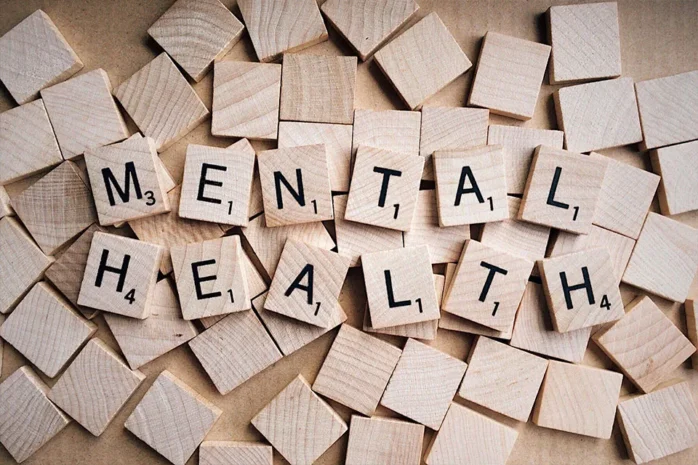Creating an inclusive mental health practice is more than just offering good coffee to your patients or being a good therapist. It means being able to treat anyone of any race, color, sexual orientation, gender, religion, and political view. It means learning to be professional and inclusive in your practice.
If you’re still not sure why mental health care should be inclusive, here are five of the top reasons why it’s so important.
1. Inclusivity Is Good for Mental Health

Being included is good for mental health. Many minorities go through life with the short end of the stick. They may not have the opportunities awarded to non-minorities, and they’re more likely to experience trauma and prejudice in their lives.
Being able to go to a safe space that is inclusive and doesn’t reject or oppress them is a great way for minorities to feel comfortable opening up and talking about something difficult. Being connected and respected is good for anyone’s mental health, and it’s especially important in mental health fields.
Inclusivity fosters:
- Kindness
- Empathy
- Openness
- Vulnerability
- Safety
- Gentleness
- Healing
Keep these values in mind if you’re starting your own inclusive mental health practice.
2. People Will Feel Seen and Heard
Being seen and heard is the most important form of validation for many people. If you open a therapy practice but refuse to allow certain identities inside, you are showing people that they are not valid to you and that they don’t deserve to get help.
Accepting someone’s gender identity itself can cause huge strides in mental health treatment. Transgender individuals are less likely to struggle with anxiety and depression when people in their life use their names and pronouns correctly.
Outside of gender or sexuality, there are unique struggles that come with being any minority. For example, some racial minorities may have cultural practices that are inherently important to their healing. Even if you do not understand or know about this practice, asking about it and showing interest can make someone feel heard and respected.
Another example is a religious minority, such as someone who practices Islam. Being careful with your language and being open to hearing about how someone practices their own religion is one way to hear someone out and help them feel respected during therapy.
3. An Inclusive Environment Allows for Growth

Those who are included are also more likely to make growth in therapy and learn new skills. For example, if you had a lesbian patient who was afraid of coming out to her parents and you told her you were unwilling to speak to her about anything regarding sexuality due to your personal beliefs, she will most likely not come back to therapy. This is true not only with you but with anyone in the future. She may also feel unsafe speaking about her feelings with anyone again.
As a therapist, you need to understand that your role is significant. You can’t have personal biases and feelings come up in a session, as it can end up doing more harm than good. Giving people the chance to be themselves and speak about what is important to them also gives them the chance to grow and continue to utilize therapy as a tool in their lives.
If you don’t feel that you can be an inclusive therapist, it’s possible that the therapy profession isn’t the one for you. In this profession, you do need to speak to and help people from various backgrounds grow and succeed in their healing.
4. It Allows Access to Everyone
Inclusive therapy gives access to resources to everyone. Minorities are more likely to experience prejudice and be banned from resources in their lives. They may even have less access to crucial resources like healthcare, rent, assistance, and clean and healthy places to live.
Opening your therapy practice up to anyone of any background allows you to provide healing for the groups who most need it. Since minorities experience large amounts of trauma, including generational trauma, therapy is needed in large amounts in communities of minorities.
Many therapists will avoid taking jobs in minority communities due to stereotypes about the areas being “poor,” “dangerous,” or “dirty.” It’s a good idea to take a class about why these opinions are harmful and what you can do to challenge them when you see them in the mental health industry.
Therapists who do take jobs in impoverished communities of minorities or communities where resources are scarce are doing their part to allow access to healing to anyone. Doing this is part of providing inclusive mental healthcare.
Another way you can provide this is by accepting government insurance or a sliding scale fee for therapy. Allow people to pay what they can, and you’ll be able to help those to whom therapy is not traditionally accessible.
5. Therapists and Clients Alike Can Learn New Things

Finally, inclusive mental health care allows you and your client to learn new things. You may learn more about a community you never heard about before. You could learn what is important to someone culturally or something about their life and experiences that you never considered before.
Even if you’re not very educated in minority issues, treating minorities in your practice can help you get there. You can learn what is most important to someone in that group by asking them. For example, people in the LGBTQ community often feel best when a therapist does acknowledge their identity, pronouns, and name properly.
Clients can also learn more by having an inclusive therapist who hears them out and gives them unique skills and advice tailored to their life and experiences. Even a little bit of validation can go a long way in helping someone heal.
Conclusion
Now you know why inclusive mental health care is so important and why it helps people heal. If you want to learn more about making your mental health practice more inclusive, check out this advice column. You can learn more about being inclusive and how to start your own practice online, allowing access to more and more communities than ever before.
The post 5 Reasons Inclusive Mental Health Care Is Important appeared first on FotoLog.
from FotoLog https://ift.tt/pilJRmr
via IFTTT



0 Comments